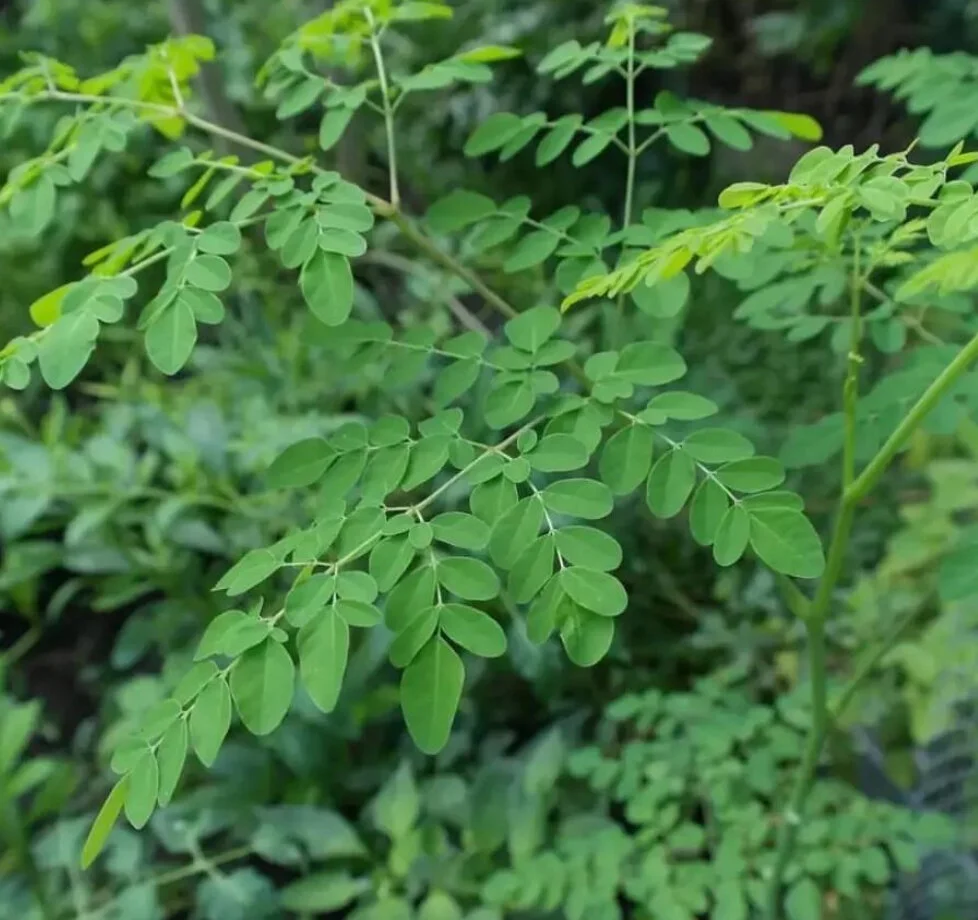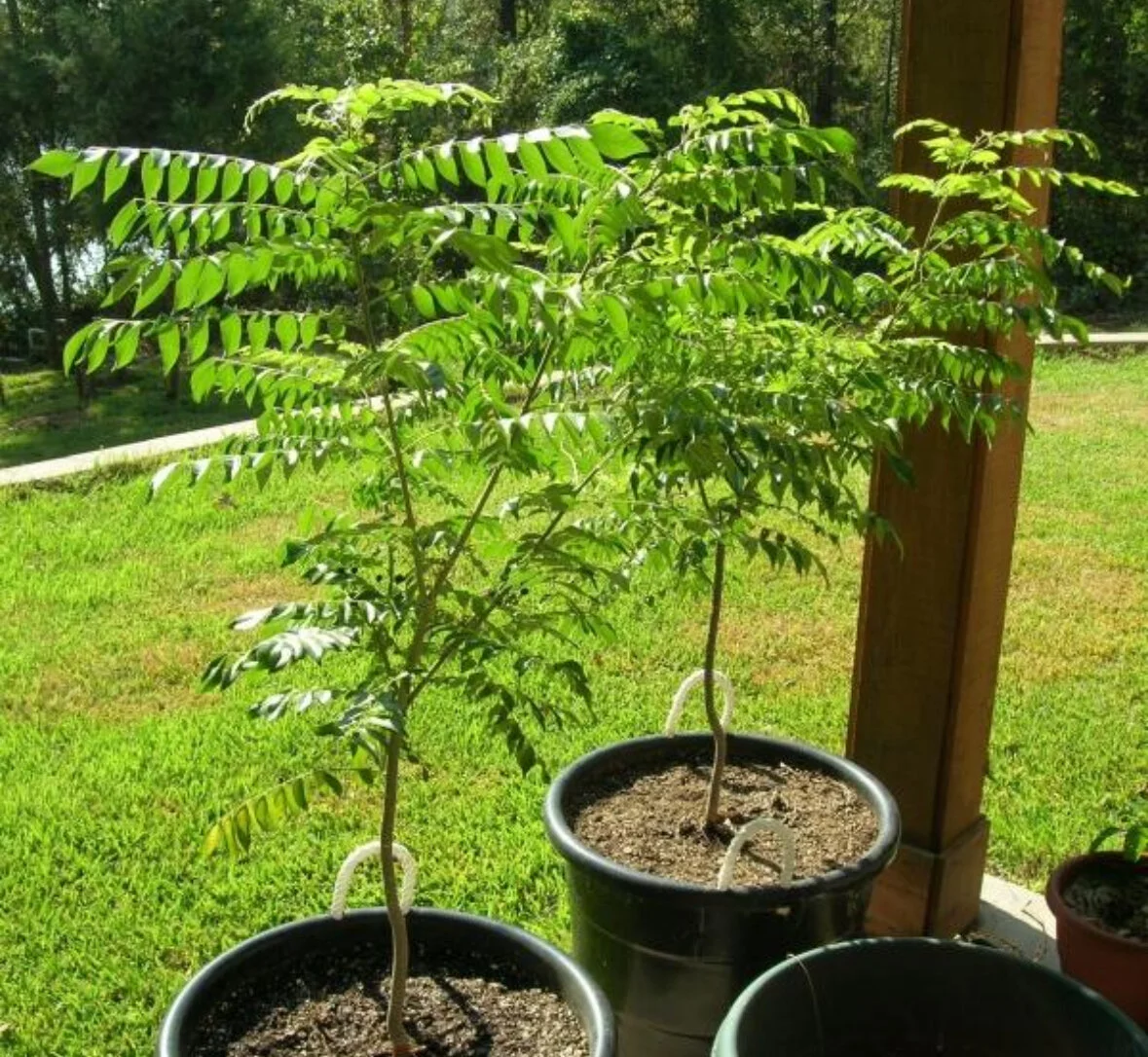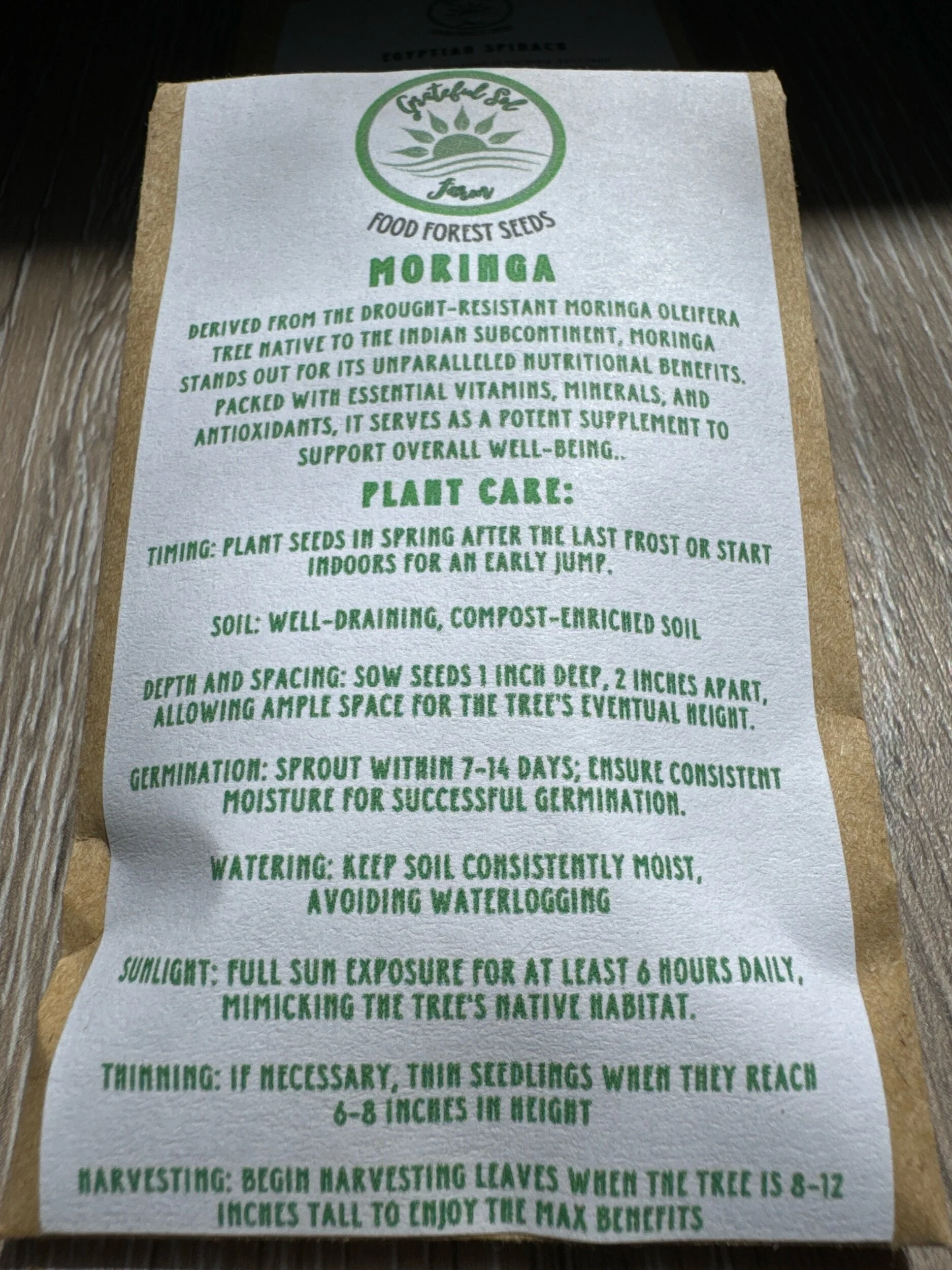Moringa Tree Seeds [oleifera]
History and Cultural Uses:
Moringa, often referred to as the "miracle tree," has a history deeply rooted in ancient cultures, particularly in regions of South Asia and Africa. It has been used for centuries in traditional medicine and culinary practices. Moringa leaves, seeds, and pods have been incorporated into various dishes, herbal remedies, and teas due to their abundance of nutrients and medicinal properties.
Nutritional Benefits:
Vitamins: Moringa is packed with vitamins A, C, and E, providing support for healthy vision, immune function, and skin health.
Minerals: High in minerals like calcium, iron, and potassium, Moringa promotes bone strength, blood health, and electrolyte balance.
Protein: An excellent source of plant-based protein, Moringa supports muscle growth and repair, making it a valuable addition to vegetarian and vegan diets.
Antioxidants: Moringa contains powerful antioxidants such as quercetin and chlorogenic acid, which help combat oxidative stress, reduce inflammation, and protect against chronic diseases.
Culinary Uses:
🧉Powdered Supplement: Moringa powder can be easily added to smoothies, juices, or soups to boost nutritional content and provide an earthy flavor.
🍵Tea: Moringa leaves can be brewed into a refreshing tea, offering a mild, slightly nutty taste along with a host of health benefits.
🥗Salads and Stir-fries: Fresh Moringa leaves and pods can be chopped and added to salads or stir-fried dishes for a nutritious green addition.
Plant Care:
⏰: plant seeds in spring after the last frost, or start indoors for an early jump.
🪱: well–draining, compost-enriched soil.
🕳️: sow seeds, 1 inch deep, 2 inches apart, allowing ample space for the tree’s eventual height.
🌱: sprout within 7 to 14 days; ensure consistent moisture for successful germination.
💦: keep soil consistently moist, avoid waterlogging.
☀️: full sun exposure for at least six hours daily, mimicking the tree’s native habitat.
✂️: if necessary, thin seedlings when they reach 6 to 8 inches in height.
🌾: begin harvesting leaves when the tree is 8 to 12 inches tall to enjoy the Max benefits.
HAPPY PLANTING! 🌳
Whether you're seeking a natural health supplement or looking to enhance your culinary creations, Moringa offers a versatile and nutrient-rich option to elevate your well-being
History and Cultural Uses:
Moringa, often referred to as the "miracle tree," has a history deeply rooted in ancient cultures, particularly in regions of South Asia and Africa. It has been used for centuries in traditional medicine and culinary practices. Moringa leaves, seeds, and pods have been incorporated into various dishes, herbal remedies, and teas due to their abundance of nutrients and medicinal properties.
Nutritional Benefits:
Vitamins: Moringa is packed with vitamins A, C, and E, providing support for healthy vision, immune function, and skin health.
Minerals: High in minerals like calcium, iron, and potassium, Moringa promotes bone strength, blood health, and electrolyte balance.
Protein: An excellent source of plant-based protein, Moringa supports muscle growth and repair, making it a valuable addition to vegetarian and vegan diets.
Antioxidants: Moringa contains powerful antioxidants such as quercetin and chlorogenic acid, which help combat oxidative stress, reduce inflammation, and protect against chronic diseases.
Culinary Uses:
🧉Powdered Supplement: Moringa powder can be easily added to smoothies, juices, or soups to boost nutritional content and provide an earthy flavor.
🍵Tea: Moringa leaves can be brewed into a refreshing tea, offering a mild, slightly nutty taste along with a host of health benefits.
🥗Salads and Stir-fries: Fresh Moringa leaves and pods can be chopped and added to salads or stir-fried dishes for a nutritious green addition.
Plant Care:
⏰: plant seeds in spring after the last frost, or start indoors for an early jump.
🪱: well–draining, compost-enriched soil.
🕳️: sow seeds, 1 inch deep, 2 inches apart, allowing ample space for the tree’s eventual height.
🌱: sprout within 7 to 14 days; ensure consistent moisture for successful germination.
💦: keep soil consistently moist, avoid waterlogging.
☀️: full sun exposure for at least six hours daily, mimicking the tree’s native habitat.
✂️: if necessary, thin seedlings when they reach 6 to 8 inches in height.
🌾: begin harvesting leaves when the tree is 8 to 12 inches tall to enjoy the Max benefits.
HAPPY PLANTING! 🌳
Whether you're seeking a natural health supplement or looking to enhance your culinary creations, Moringa offers a versatile and nutrient-rich option to elevate your well-being
History and Cultural Uses:
Moringa, often referred to as the "miracle tree," has a history deeply rooted in ancient cultures, particularly in regions of South Asia and Africa. It has been used for centuries in traditional medicine and culinary practices. Moringa leaves, seeds, and pods have been incorporated into various dishes, herbal remedies, and teas due to their abundance of nutrients and medicinal properties.
Nutritional Benefits:
Vitamins: Moringa is packed with vitamins A, C, and E, providing support for healthy vision, immune function, and skin health.
Minerals: High in minerals like calcium, iron, and potassium, Moringa promotes bone strength, blood health, and electrolyte balance.
Protein: An excellent source of plant-based protein, Moringa supports muscle growth and repair, making it a valuable addition to vegetarian and vegan diets.
Antioxidants: Moringa contains powerful antioxidants such as quercetin and chlorogenic acid, which help combat oxidative stress, reduce inflammation, and protect against chronic diseases.
Culinary Uses:
🧉Powdered Supplement: Moringa powder can be easily added to smoothies, juices, or soups to boost nutritional content and provide an earthy flavor.
🍵Tea: Moringa leaves can be brewed into a refreshing tea, offering a mild, slightly nutty taste along with a host of health benefits.
🥗Salads and Stir-fries: Fresh Moringa leaves and pods can be chopped and added to salads or stir-fried dishes for a nutritious green addition.
Plant Care:
⏰: plant seeds in spring after the last frost, or start indoors for an early jump.
🪱: well–draining, compost-enriched soil.
🕳️: sow seeds, 1 inch deep, 2 inches apart, allowing ample space for the tree’s eventual height.
🌱: sprout within 7 to 14 days; ensure consistent moisture for successful germination.
💦: keep soil consistently moist, avoid waterlogging.
☀️: full sun exposure for at least six hours daily, mimicking the tree’s native habitat.
✂️: if necessary, thin seedlings when they reach 6 to 8 inches in height.
🌾: begin harvesting leaves when the tree is 8 to 12 inches tall to enjoy the Max benefits.
HAPPY PLANTING! 🌳
Whether you're seeking a natural health supplement or looking to enhance your culinary creations, Moringa offers a versatile and nutrient-rich option to elevate your well-being



